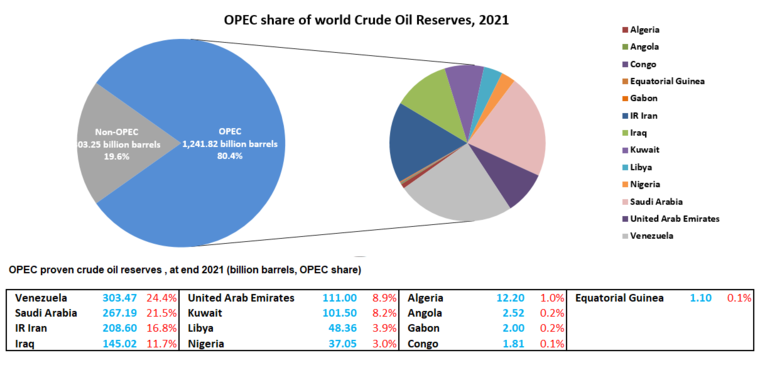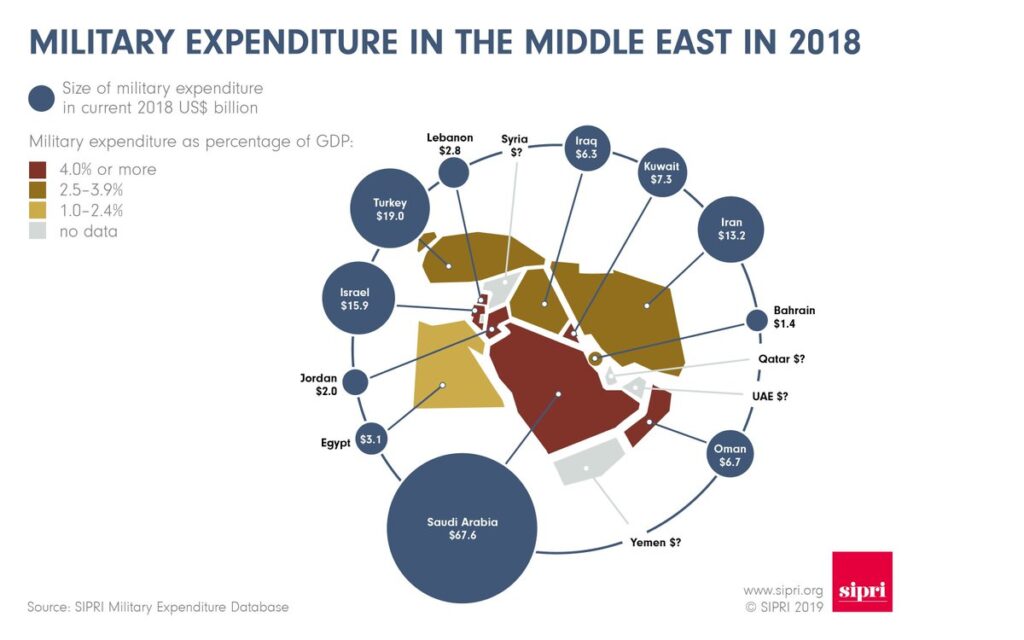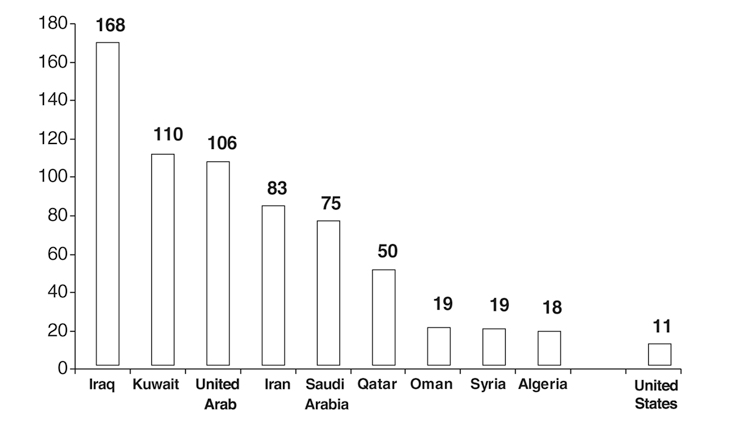
Oil rent, or the income created by states with oil production, have been suggested to lessen democratization by many political scientists, including Michael Ross. Ross asserts that “oil inhibits democracy even when exports are relatively small, particularly in poor states,” and that states are more likely to spend more on their militaries and more on their oil production than other more efficient income streams (Ross 356). Because states have more oil money, they have less reason to tax their populations, and are free from accountability. In addition, states spend most of their oil wealth on their own oil industry, and their security apparatus which do not help to bring in more money, leaving themselves at the mercy of the inconsistent oil market. While the massive size of these rents make a massive impact on the social and political issues caused by oil wealth, the states’ use of the wealth and decisions about spending are what have a larger impact on authoritarianism.
The case for the sheer size of oil rents is a promising one, especially since governments can spend more with higher and larger oil wealth. However, factors like population, patronage, and military spending have a higher impact. For example, many smaller nations or nations with drastically higher oil wealth like Qatar and Saudi Arabia can maintain massive patronage systems, spend more on their security, and can survive more shocks in the oil markets than a state like Iraq or Syria. Smaller states are also reliant on these rents buying acquiescence, for “any attempt at curtailing what was now perceived as entitlements would be strongly resisted,” meaning that the rising issues of oil running out and a one-track economy could prove disastrous if the population’s wealth is affected by a decline in the oil market (Cammett 327). Because smaller states have more oil wealth per capita than many of the larger states, they can buy the approval of their populations and preserve democracy better.

Larger states have more to worry about because of their larger populations, and how they cannot buy the approval of all their population. These larger states do not want to threaten their own power with the development of the private sector, so they spend more on their security apparatuses and “levels of repression rose” to keep their populations in check (Cammett 328). Middle Eastern states spend more money on security proportionally than most regions in the world, mostly because of oil wealth and the need for larger states to repress their populations. Ross notes how “oil wealth may be linked to higher levels of military spending, which in turn tends to impede democracy” (Ross 350). Larger states must rely more on their capacity for violence to keep their population from rising up, showing that the oil wealth, rather than being used for the development of the private sector of their economies, is instead used to oppress their populations and benefit the ruling classes.

While the size of oil rents is a major contributor to the high levels of authoritarianism in the Middle East, various political and economic strategies are a larger cause of the region’s massive lack of democracy. Larger and smaller states, while using different strategies, have a similar outcome, which is the suppression of democratization, whether through patronage or through force. However, this problem could also impact the future too, especially with the movement towards more sustainable energy in renewables, and a fluctuating oil market, meaning these regimes will likely need to find alternative income streams to survive if they want to keep up with the modern economy. However Middle Eastern regimes have mainly doubled down on their investments in oil and have continued to have hydrocarbons as a massive part of their economies (Cammett 347). If left unchanged, a decline in the oil market could topple these states, especially since they are very reliant on the oil market to stay high.
Bibliography:
Cammett, Melani Claire. A political economy of the Middle East. Routledge, 2019.
Ross, Michael Lewin. 2001. “Does Oil Hinder Democracy?” World Politics 53, 3. (Apr.): 325-361 [pdf]
Leave a Reply